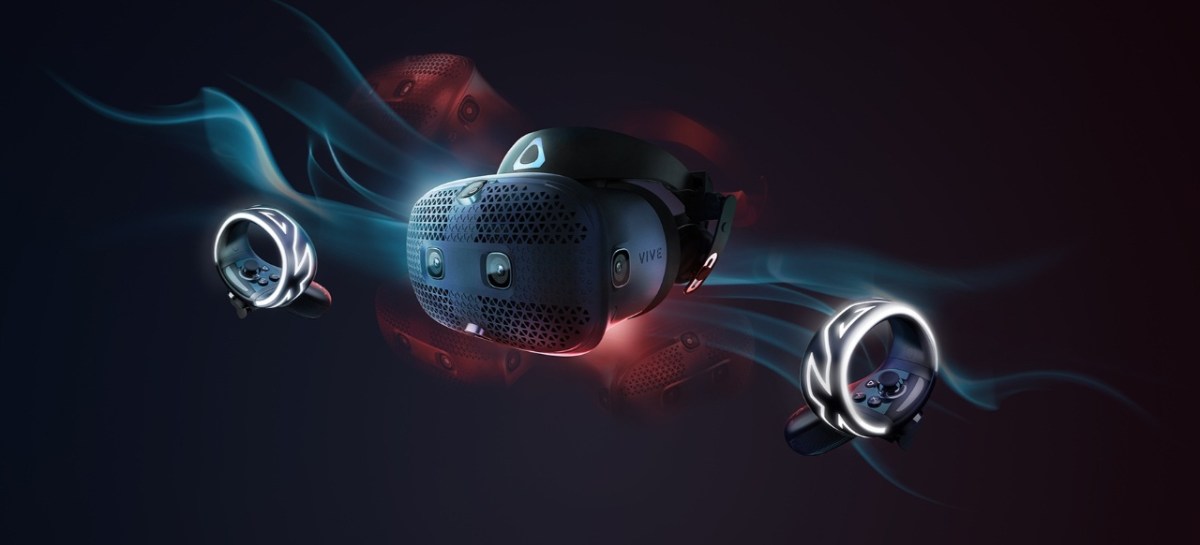„HMD:
- Improved low light tracking, with better prediction during fast movements.
- Fixed a bug where the too bright/low light notification would not show up – see example.
- Enabled VIVE Wireless Adapter compatibility.
Known issues:
- You may experience performance issues on older & lower end CPUs. We are working hard to improve this in the next release.
- If you experience connectivity, audio or display issues, please disable USB power management.
- Please note Cosmos requires a new 21W power bank, the connection cable for Cosmos, Velcro clip, and a new pad to attach to the headstrap. Due to the new inside-out tracking on Cosmos and other features, the headset draws slightly more power than the current Vive Wireless Adapter battery can support, so this new battery is needed to power this headset wirelessly. In addition, Vive Cosmos processes all the camera tracking data solely in the headset and never sends the visual tracking data to the PC. While this means we are securing user privacy in their play space, this approach results in a higher headset power consumption.
Controllers:
-
Improved low light tracking stability. The minimum brightness requirement for reliable tracking is now 60% lower.
-
Improved high brightness tracking stability. The controllers will now track much better against a bright background, such as windows and studio lights.
-
Improved prediction models for the case when a controller exits the headset’s
field of view (FO
V)
.
-
Positional recovery is now faster and more accurate when returning into the headset’s FOV.
-
Improved tracking
close to HMD
. Optimal range is now
redu
ced up to 10
cm/4 in
ches
from the HMD
.
- Improved slow movement occlusion tracking prediction, which will help with content where the controllers are frequently occluding one another.
-
Improved the tracking algorithm to be better at ignoring other Cosmos controllers and patterns that may resemble the Cosmos controller, especially when the connected pair are out of the headset’s FOV.
*We will be continuously improving all aspects of the tracking algorithm in future updates.
ViveVR Runtime
ViveVR Runtime
-
Fixed Error Code 210 runtime
bug
.
-
Non-HDCP errors on certain
laptops caused by old
Nvidia V-BIOS
identified
, notably on some MSI laptops.
It will n
ow
be
separately reported as Error Code 220 (previously aggregated with Error Code 210).
If you encounter this on an MSI laptop, please reach out to
MSI Technical Support
for
an updated new V-BIOS.
-
Fixed a bug with the play area boundary transparency settings and fine-tuned its appearance
behavior
.
-
Optimized the
camera passthrough
vignetting
to better align and render safety boundaries.
-
Added error logging and troubleshooting for SteamVR compositor crashes, installation path and cases involving Safe Mode.
-
Improved mapping of error codes for edge case situations.
-
VIVE
Origin is no longer forced as the default home environment.
-
Optimized tracking pose prediction to improve visual experience.
-
Resolved an issue where the IPD display would sometimes show when the HMD was moving quickly.
-
Updated low light notification strings for Dutch, Danish, Finnish, Norwegian & Swedish languages.
VIVE
Console
VIVE
-
Fixed a
bug
where the DisplayPort connection errors would pop up before the connection had time to stabilize.
-
Added Beta Release Notes and a link to all VIVE Cosmos Release Notes.
-
Fixed registry issues caused by switching Windows accounts and installation changes.
OOBE & Room Setup
OOBE & Room Setup
-
Fixed a bug where a transparent window would appear during setup when the HMD was connected.
-
Fixed a bug where UI elements and Russian fonts were displayed incorrectly at 4K monitor resolution.
-
Improved the animation explaining how to put on the HMD during setup and updated the Cosmos Setup shortcut icon.
-
Updated and improved the animations and instructions for Room Setup.
-
Updated the environment UI around the animations for the room scanning step.
-
Fixed the null button UI bug for Chinese (Traditional/Simplified), Korean and Japan languages.
Lens
Lens
-
Improved the accuracy of the Cosmos-compatible filtering
behavior
.
-
The Lens will no longer prevent launching of incompatible or unoptimized Cosmos titles from your Library. Instead, a warning icon will be displayed on top of thumbnails for titles that may not be compatible with Cosmos. However, it will launch properly.
-
Added “New Releases” store carousel on the VIVEPORT page.
-
Added support for limited-time trial content and ability to correctly indicate its access permissions.
-
Added language support for Italian and Russian.
-
Fixed bugs with French voice output.
Next Update (Mid
–
November Beta)
Next Update (Mid
We are continuing to work to improve our tracking. To get access to future releases earlier, you can opt-in to our Beta program. Our next update targeted for beta in mid-November will work to improve the following scenarios:
HMD:
-
Further
improvements in
jitter
reduction
in low light environments.
-
Improved
wireless experience on
older and
lower end CPUs
.
Controllers:
-
Improved controller occlusion tracking to support
two-handed “r
ifle mode
” in shooting games.
-
Optimized tracking trajectory when a controller exits and
re-
enters the HMD’s FOV
. This will improve content that involve the controllers frequently going behind the HMD or experience large amounts of swinging, such as racket &
melee-based
games.
-
Better alignment of
right and left controller tracking pose
behavior
after
being near the HMD“

Eine kurze Geschichte der Videospiele
Die Geschichte der Videospiele beginnt bereits in den späten 1940er Jahren mit wissenschaftlichen Tüfteleien. Die erste bekannte von ihnen war “OXO”, ein Tic-Tac-Toe-Spiel, in dem man gegen den Computer antrat.
